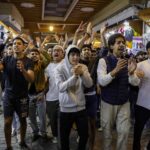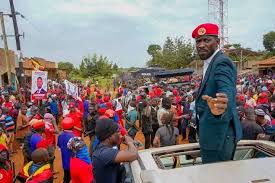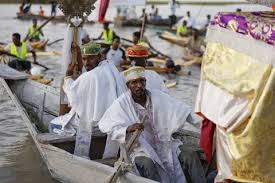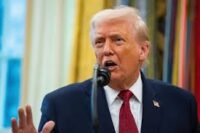A military court in the Democratic Republic of Congo has sentenced former President Joseph Kabila to death in absentia after finding him guilty of treason, war crimes, and crimes against humanity. The case, which has gripped national and international attention, accuses Kabila of collaborating with the Rwanda-backed M23 rebels who have carried out deadly attacks, mass displacement, and human rights violations in the eastern provinces of the country.
The conviction is unprecedented, marking the first time in Congo’s history that a former head of state has been handed such a severe sentence. Joseph Kabila, who ruled the Democratic Republic of Congo from 2001 until 2019, has long been a polarizing figure. Once hailed as a young leader who stepped into power following the assassination of his father, Laurent-Désiré Kabila, his presidency was later overshadowed by allegations of corruption, election manipulation, and failure to end decades of conflict. The trial has now linked him directly to the resurgence of the M23 rebellion, accusing him of facilitating operations that led to killings, sexual violence, forced displacement, and the destruction of entire communities.
The proceedings were conducted in his absence after Congo’s parliament revoked his immunity as senator-for-life earlier this year. Despite being summoned, Kabila never appeared in court and did not appoint a defense team, leading the military tribunal to carry out the hearings without him. Alongside the death sentence, the court imposed financial penalties, demanding compensation for the Congolese state and victims of atrocities linked to the M23 group. His current whereabouts remain unknown, raising questions about whether the judgment can be enforced.
Joseph Kabila has denied all allegations, with his allies calling the trial a politically motivated attempt to erase his influence from Congolese politics. They argue that despite the controversies of his leadership, Kabila was instrumental in overseeing peace accords that ended parts of the country’s civil wars. However, critics point to years of authoritarian rule, persistent corruption, and electoral crises during his time in office as evidence of a legacy that failed the Congolese people.
The ruling comes at a time when eastern Congo continues to be plagued by violence. The M23 rebels, named after a 2009 peace deal, re-emerged in 2021 and have since captured territory, displaced civilians, and deepened tensions between the DRC and Rwanda. By directly linking Kabila to the group’s operations, the court has sent a strong message that even the highest leaders are not beyond accountability. Analysts say the judgment may serve as a precedent for prosecuting former heads of state in Africa for war crimes and human rights abuses, though others warn it risks fueling further political instability.
International reactions have been swift, with human rights groups describing the trial as a bold but risky move. Some see it as a long-awaited step toward ending impunity in a country scarred by decades of war, while others caution that it could inflame divisions, especially among Kabila’s loyalists. For many Congolese citizens, the sentence represents both a symbolic victory against corruption and impunity, and a reminder of the fragility of peace in their country.
Whether the death sentence will ever be carried out remains uncertain, but the ruling has already left a mark on the Democratic Republic of Congo’s political landscape. Joseph Kabila, once a symbol of hope as one of Africa’s youngest leaders, now faces condemnation as a convicted traitor, casting a long shadow over the nation’s pursuit of peace, stability, and justice.














Leave a comment